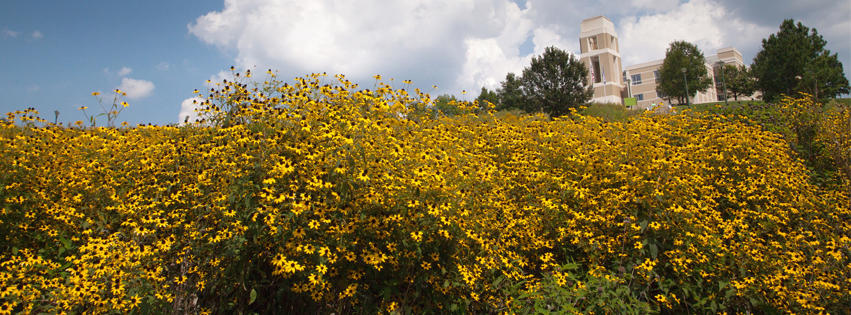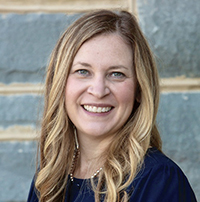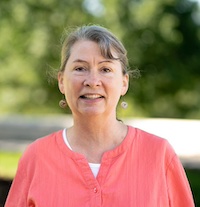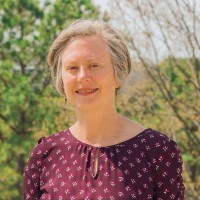

"Universities educate most of the people who develop and manage society's institutions. For this reason, universities bear profound responsibilities to increase the awareness, knowledge, technologies, and tools to create an environmentally sustainable future. Universities have all the expertise necessary to develop the intellectual and conceptual framework to achieve this goal."
- Report and Declaration of the Presidents Conference, Talloires, France, 1990

Christie-Joy Brodrick Hartman
Executive Director

Amanda Bodle
Program Manager

Amy Goodall
Sustainability Project Advisor

Carol Lena Miller
Program Coordinator

Essa Paterson
Program Coordinator
BACKGROUND
JMU has a long history of contributions across units and by individuals. Many of JMU’s environmental sustainability achievements to date can be attributed to voluntary past and current efforts of staff, faculty, and students in many areas, commonly in collaboration. In 2008, following the recommendations of the President’s Commission for Environmental Stewardship and Sustainability, JMU adopted a strategic emphasis to promote cultural change for environmental stewardship and sustainability and a broader sense of citizenship. The Institute for Stewardship of the Natural World (ISNW) was created to coordinate and advance sustainability efforts as consistent with universities' education, research, and service missions. Today, the ISNW maintains its focus on building an environmentally literate community whose members think critically and act, individually and collectively, as model stewards of the natural world.
MISSION
Enhancing environmental stewardship and sustainability by advocating for priorities; coordinating the collaborative efforts of the university to promote cultural change and a broader sense of citizenship; and challenging all members of the JMU community to participate in educational opportunities and think critically about their role in achieving the long-term stewardship of Earth.
ROLE
The Institute for Stewardship of the Natural World:
- tracks environmental and sustainability education and engagement opportunities, including creating inventories of courses, programs, and research.
- assesses achievement of student environmental stewardship learning outcomes and the culture of sustainability.
- measures university sustainability progress across the three dimensions of sustainability.
- provides information and tools to encourage our community members to be environmentally literate, ecologically responsible citizens.
- supports faculty and student sustainability research and scholarship as well as faculty professional development.
- advocates for environmental stewardship priorities, including recommending actions that demonstrate environmental stewardship in operations.
- showcases best practices and accomplishments.
- builds internal and external partnerships that enhance environmental stewardship capacity.
- facilitates access to campus information and resources related to environmental stewardship.
- coordinates the East Campus Hillside and Science On a Sphere.
- coordinates ISNW stakeholder committees.
COMMITTEES AND EXECUTIVE COUNCIL
The ISNW organizes stakeholder committees, which were also formed in 2008 following the recommendation of the President's Commission for Environmental Stewardship and Sustainability. Faculty and staff serve on the committees. Students provide input through the ISNW student educator program. The committees make policy and practice recommendations, conduct projects related to their expertise, and serve as peer educators. Committees are dynamic, being created and concluded over time.
The East Campus Hillside Advisory Committee provides recommendations, conducts scholarly studies, and conducts outreach about the area.
The Liaison Group increases awareness of issues of sustainability and environmental stewardship through planning, marketing, and supporting programs that share information which challenges all members of the JMU community to think critically about their role in achieving the long-term stewardship of the Earth, and also models and champions best practices for environmental stewardship and pilot tests potential environmental stewardship initiatives.
The ISNW is advised by an Executive Council. Council members include:
- Dirron Allen, Ed.D., Associate Vice President for Student Life and Involvement
- Jini Cook, Director of Real Property and Space Management
- Linda Plitt Donaldson, Ph.D., Associate Dean, College of Health and Behavioral Studies
Director, Institute for Innovation in Health and Human Services - Gary Shears, Executive Director of Facilities and Construction
- Craig Short, Associate Vice President of Business Services
